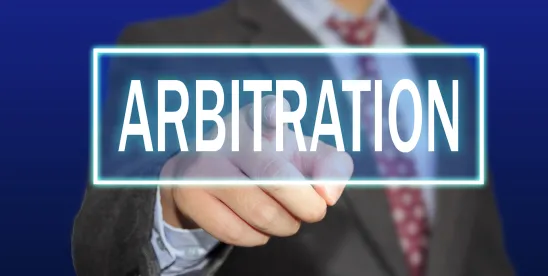On June 12, 2025, in Watkins v. Musk, the District of Massachusetts granted Elon Musk’s motion to dismiss a putative class action and to refer the claim to arbitration. The court ruled Musk could enforce an arbitration agreement between plaintiffs and Tesla to prevent Musk from having to litigate the claim, despite Musk not being a signatory to the clause.
Elon Musk’s Statements About Tesla on X
Plaintiffs, a putative class of Tesla electric vehicle (“EV”) purchasers, brought a claim against Musk in his individual capacity and as the trustee of his personal trust for alleged misrepresentations regarding the driving range of Tesla’s EVs. Plaintiffs claimed that the statements, made during product launches and on Musk’s X account (formerly Twitter), falsely stated that certain Tesla EVs’ ranges exceeded 300 miles per charge.
In addition, plaintiffs alleged Musk directed Tesla to falsely advertise its EVs’ ranges as exceeding 300 miles per charge, the standard distance consumers seek when purchasing an EV. They also claimed Musk instructed Tesla to alter the EVs’ dashboard meters, where a car’s range is displayed, to show an inflated range.
This scheme, plaintiffs allege, aimed to increase sales of Tesla’s EVs, and thus, Tesla’s share price. By raising Tesla’s share price, plaintiffs argued, Elon Musk’s trust, of which he is the sole trustee, would benefit, as it holds between 20.5% and 23.5% of Tesla’s stock.
Power of Non-Signatory to Invoke Arbitration Clause
The Federal Arbitration Act is liberally construed to allow parties to settle disputes through arbitration. But, like any contract, parties must agree on who has the power to enforce the clause and what issues the clause covers. When this is unclear, courts consider the intention of the parties at the time the contract was made, and the plain and ordinary meaning of undefined terms.
As the First Circuit has noted (as recently as June 2025 in affirming a non-signatory’s motion to compel arbitration), parties are generally not bound by, and cannot enforce, contracts to which they are not signatories, including arbitration agreements. However, in some rare exceptions, state law principles of agency and contract law apply to allow non-signatories to invoke such contracts.
Those principles, the Court held, applied here. Tesla’s Motor Vehicle Order and Purchase Agreements state that the arbitration provision “applies to any dispute between [the consumer] and Tesla, Inc. and its affiliates.” According to the Court, the plain and ordinary meaning of the word “affiliate” includes people associated with an entity, particularly those in a “control-based” relationship with the entity. In the Court’s view, the CEO of an entity subject to an arbitration clause fits plainly into the category of “affiliate,” thus allowing Musk to enforce the provision.
Additionally, the Court noted, in some jurisdictions, agents of parties to an arbitration agreement can invoke arbitration agreements when the claims they face concern actions they took in the scope of their agency relationship. Though Massachusetts has a narrow reading of this exception, the First Circuit in Grand Wireless, Inc. v. Verizon Wireless, Inc. adopted a similar understanding, stating that when an employer and a litigant have entered into a valid arbitration agreement, and when “the underlying action in the dispute was undertaken in the course of the employee’s employment,” an employee can invoke the arbitration clause.
Such was the case here. Elon Musk, the Court found, was acting in the scope of his employment by Tesla, even when he was using his personal X account to make the claims. As such, Musk had the ability to invoke the arbitration agreement.
Broadly Drafted Arbitration Clauses Allow for Non-Signatory Enforcement
The Court’s reasoning in Watkins provides a nuanced rubric for interpreting arbitration clauses and determining who may invoke agreements to arbitrate. When encountering broad, undefined language, consider whether non-signatory parties may feasibly be included as benefitting from or governed by an arbitration clause, including as an intended third-party beneficiary. Pay special attention when arbitration clauses include “affiliates” as those who may enforce the clause. Alternatively, when arbitration clauses explicitly include employees, be sure to carefully evaluate whether individuals, though purportedly acting privately, are acting within the scope of their employment. The Watkins decision serves as an important reminder that a litigant’s analysis of whether an arbitration agreement may be invoked in a class action begins, but does not end, with attention to the named parties and signatories to the agreement.



 />i
/>i
